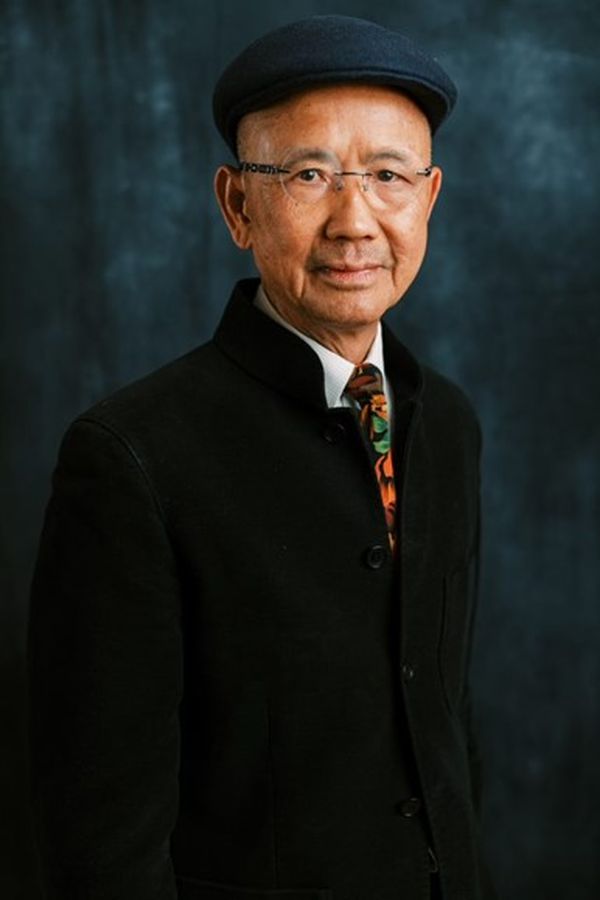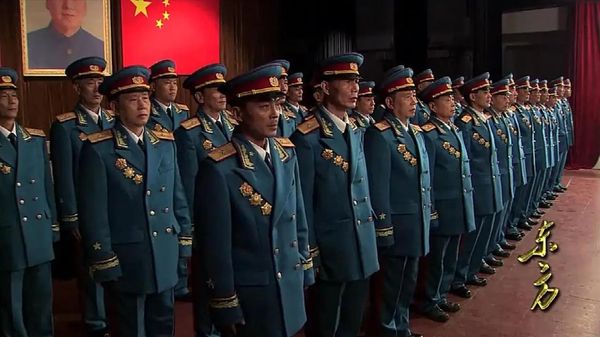缅甸的绿色经济机遇(汪振富)
缅甸的绿色经济机遇
在第七届世界缅华同侨联谊大会上的讲话
世界绿色组织会长 汪振富
今天,我想跟大家分享我对缅甸的看法。大家有没有梦想过,缅甸可以成为世界上一个绿色经济的强国,是的,它有其他国家没有的条件,它的未开发,未被污染,反而造就了缅甸可以成为绿色的经济巨人,缅甸没有甚么歴史的枷锁和限制,只有未来充满爆炸性的机遇。只要我们有远见、有创新的思维,便可以在这里,推进本土绿色的发展,甚至走向国际。好,看看我手上拿的是甚么?好,另外一只手拿的又是甚么来的?对,这是……未错,这是……您知道这一个是从这一个来的吗?
这就是「化废为宝」的例证,这就是运用自身资源创造商机,把废物变成有用及有价值的物料,我手拿的是可降解的物料,将来可制成商品期货,在国际市场交易。
另外,也可以将这些本来是垃圾的农产品废料加工,变成生活用品,产品就可以卖到国际市场,卖给不同的跨国企业,MacDonald, KFC……对对,这些都是真实的例子,所以重点在于怎样激发更多创意,缅甸作为农业大国的同时,是可以定位在这方面发展,比如说这些农产品废料,其实不是垃圾,是可降解的物料,缅甸就可以定位成为主要的生产国。这就是商机,这就是创造市场。在整个产品演化过程中,我想请问大家,有没有想过它的潜力和爆炸力是那么的大?「化废为宝」呀。处理垃圾要另外的成本,现在变成了经济收入。
谈到垃圾,这是世界各国共同面对的问题,要用堆填或填埋解决,英、美、欧洲地方大尚可做到,但亚洲寸金尺土,那就要焚化,把垃圾烧掉,可惜民间因忧虑焚化会产生毒气,造成空气污染,动辄就会有民间大规模示威;是难题,不过刚才大家看过垃圾怎样转化为有用的东西,透过科技,造福社会,所以我们需要作出改变,过去传统生活方式和处理问题的方法,要用新的视野,才会见到新的商机,缅甸是可以避免走传统的路线,避免走人家走错过的路,绿色产业是新的行业、新的机遇,这正好反映一个创新 (Innovation) 的原则,问题本身就是创意的触发点,有创意就有商机,更可以成为新的经济增长模式,新的投资动力。缅甸需要它 (创新 (Innovation) 。
不以环境代价换取经济成果
要避免走人家走错过的路,我们可以环顾亚洲发展中国家,不少政府因急于追求经济成长,竟然默许企业破坏环境,使土地、河流饱受污染,林木被大量砍伐,让整个生活环境变差,甚至影响民众的健康,其实社会是要为破坏环境付出代价的,日后会反映在治污成本和医疗开支上面,缅甸需要崭新的思维,不应该重复这些问题,不要用环境的素质和人民的健康来换取经济成果,避免「先污染、后治理」的短视做法,让下一代承担恶果,现在看到许多取得经济成就的国家,要面对空气污染、癌症村、或用上30年方可修复的土地,我们有必要用绿色模式去取代这些,所以政府在开始发展的时候,就要引进国际上相关的法规和制度,引入污染者自付的原则,并要做好基建规划配套,确保防污和治污的工程项目到位,解决因人口和工业增长所产生的各种污染和废物问题。
「绿色」的威力在于以正面思维及其全方位去计划及治理国家。在这新时代,我刚才讲过要用新的视野,所以我们对「绿色」这两个字应该有全新的演译,它不单单代表环保,也代表和平、美好、和谐、尊重、分享、平等和爱心,既要做有意义的事,做「应该做」的事,也要用正确的方式把事情做好,其实「绿色」并不是潮流,而是大家要追求的指针,在经济的层面上,它是一个极高回报的投资,不再是支出,它包括了产品生产的安全、企业的诚信、消费者权益的保障及知情权,只要奉行刚才讲的绿色理念,国家可以变成绿色经济强国,企业可以变成良心企业,不污染自己生活的环境,又照顾社会上有需要的人。所以希望在座各位缅甸的优秀商家才,你们做决策时,不要单以经济得益挂帅,同时也有「绿色」思维,尽企业的社会责任,把缅甸变成绿色经济强国,达至三赢 (企业、环境、国家)。
农业为本,绿色经济
那么缅甸政府又有什么角色?政府应该明确订明国家既看重实体经济又看重环境,以第一产业为本,在政策上支持渔农业的发展;第二产业就为副,循序渐进发展低污染的工业;第三产业则配合经济增长,使服务业健康的出现。其实,缅甸拥有丰富的天然和农业资源,农渔林业又占国民生产总值百分之四十,政府可探讨怎样策略牲利用这些天然资源,缅甸素有「稻米之国」之称,从事农业的人口超过百分之六十,农产品除稻米和柚木外,还有玉米、小麦、甘蔗和花生等,亦是世界柚木产量的第一大国。缅甸政府可利用自身肥沃而未受污染的土地,建立世界级的有机耕种,借助科技,提高生产力,确保农产品供应能够自给自足,更可稳定本土粮食的供应,减低粮食价格在国际市场波动带来的冲击。
随着城市的发展不断扩大、入侵乡郊地区,政府在推展经济项目时,不应该盲目追求城镇化及工业化发展,国际上近年出现新词汇Rurbanisation,又称:Rural-Urbanisation,意思是乡村在走向「城镇化」之余,又保留乡郊元素,激活已被遗忘文化遗产,比如蒲甘城(Bagan)就是一个很好的例子,保留乡郊元素,用来全方位发展当地的生态旅游,带来商机和更好的生活素质。缅甸政府应在面对这发展势头,在发展与环保两者间取得平衡。
在推动第二产业的发展时,要防止第二产业——工业破坏第一产业,其他发达国家发展的蓝图是把农业外判其他国家,第一产业——农业不断萎宿,失业增加,人口移向城市,惟有倚靠第二产业带动经济增长,并加速了对第一产业的污染,最后把第三产业发展成为三者份额最大的产业,移走污染 (第二产业),然后发展治污科技及服务,卖给低技术劳工密集的国家,由「黑」变「绿」;缅甸要引以为鉴,要跃过 (Leapfrog) 这些发展轨迹,反其道而行,以「绿」先行以抑制「黑」的出现,所以在缅甸无论是任何经济发展项目、工业等计划,所有的配套设施,都要有相关的专业环境影响的评估,确保符合国际最新的标准。有这基础下,缅甸就可以走到环保的最前线,发展「环保」的第三产业,例如为全球气候变化做出贡献,成立「碳排放交易所」,提升改造第二产业——为第二产业,工业计划定碳排放配额,间接催化为工业节能、减碳的服务出现,刚才提到的可降解物料的生产,同样在将来可以放到碳排放交易的平台上,用低碳孕育新的服务行业,新的交易平台,并和日后成立的各种金融交易所配合,创造及衍生不同的绿色金融产品。
公民责任,绿色教育
要推行绿色经济,单靠政府法规是不足够的,最重要的是人民的素质,虽然我提到要用新的视野,但传统的理念、美德,包括了家庭观念都应该保存,一些国家过去在发展经济时,全面打破昔日的传统核心价值,结果出现道德真空,出现假货,食品安全等危机。建立正确的思维,使「环保」成为每个人的意识形态是非常重要的。缅甸可考虑发展「绿色学校」及「绿色大学」,把正确和美好的绿色生活价值观、从小教育缅甸的国民,要把「环保理念」纳入国策,所有政策和措施都由此而来,除了公民质素外,还需要做好人才的培训工作。根据联合国于2008年9月出版《绿色工作:在低碳、可持续发展的世界实现体面劳动》的报告指出,「绿色经济」在创造就业方面有巨大潜力;通过政府的推动和投资,美国单在可再生能源和能源效益行业所带来的新职位,到2030年之前已多达4,000万个。
政府应透过不同的大学和技术学院,提供不同的专业课程,并发展「大学——企业合作」实用模式,透过鼓励商界聘用大学的专家学者,推动绿色创新产业的发展。当然政府跨部门也要协调,做好环保信息及技术支持中心、为企业提供绿色信贷、以至为回收再造业提供补贴等不同的扶持措施。同时在「筑巢引凤」的过程中,政府亦应发展绿色认证事业,引进世界级的技术方案。同时,政府亦要为基层提供全面的绿色环保教育课程,甚至安排在职培训,尽早建立本土人才库,好让人才到位,配合整体社会的长远经济发展需要。
所以为迎接市场开放带来的挑战,领导人应有新思维,把环境、民生和经济三者互相结合,并以「绿色」订为国策,制订未来十年、以至二十年的发展蓝图。将缅甸发展成独一无二汇聚世界绿色科技及精英的平台,吸引创意思维,绿色投资,「人」、「财」俱到位,并定位缅甸成为世界最后一片净土,一块璞玉,认定未经污染的空气、水源及粮食对人民、对世界才是最重要,也成为世界各国人民所向往的乐土。领导人将与人民一起肩负世界公民的责任,全方位思考人与自然相处之道,亦应发动自工业革命后另一场有意义的绿色革命,把世界问题拨乱反正,领悟平衡、和谐所带来的健康和意义,带领人民追寻真正优质的生活环境,关心各个社会阶层,发展真正绿色国民生产总值(Green GDP),为我们的下一代谋福祉。
总结
作为缅甸华侨,多年来,我希望为缅甸筹谋,为这片土地的未来作出贡献。我看到缅甸若能把「绿色」推广至国际社会,利用友善的「绿色外交」平台,将可解决当前许多的社会问题,保护及改善地球的环境,甚至把「绿色外交」推向联合国,透过这平台,提高缅甸的国际地位,增进国与国之间的友谊和信任。
世界缅华同侨联谊大会多年来都积极为缅甸的前途出谋献策,所为的不单单只是缅甸华侨,而是全体国民的利益。要实践这绿色建国工程,我呼吁缅甸政府及领袖应尽快抓紧这机遇、上下一心,带领全国走上这可持续发展的高速公路,把缅甸打造成一个世界级的绿色快乐强国。在投资环保之余,又可促进经济发展,改善民生。我希望将来大家谈到缅甸,就会想起环保,想起安全可信的绿色产品,正如现在我们谈到电子产品,就会想起韩国一样。
最后,让我们共同推动变革。祝愿大家在这绿色青云路上,更上一层楼!
2013年9月8日
笔者简介
汪先生于1958年出生于缅甸,祖籍福建同安,已婚及育有一子一女。汪先生于加拿大多伦多大学毕业,主修商业及经济,具30多年的环保营商经验。汪先生现担任世界绿色组织创会会长、香港绿色学会创会会长、香港缅甸商会创会主席、香港绿色企业集团创办人及行政总裁。汪先生多年来仍心系缅甸,对缅甸的情怀未变,希望能凭着自己过往所学,为缅甸献计,改变它的未来。
he 7th World Myanmar Chinese Conference, Yangon, Myanmar
September 8, 2013
Keynote Topic: The Green Economic Opportunities of Myanmar
Mr Albert Oung- Founder and President, World Green Organization
Today, I would like to share with you my vision for the Myanmar of tomorrow. It is a vision of a healthy, thriving country. A country that embraces the challenges of modernization while protecting its natural beauty.
Can you imagine Myanmar as an economic leader in the global Green Revolution?
Myanmar certainly has an edge over many other countries in the region, and has the potential to set a new standard for how industries can work in harmony with the environment. Having been sheltered from the pollution and destruction of modernization, it is one of the last remaining countries where economic development has not destroyed its environment and devoured its resources.
This country’s economic success depends entirely on its resources, and, more importantly, its ability to manage them responsibly. As Myanmar seeks to find its place in the international community, we also have a responsibility to implement sustainable and innovative ideas that protect the environment.
This goes to show that, “one man’s garbage is another man’s treasure”. This utilizes its own resource, but more importantly, it is a golden business opportunity.
The bio-degradable material that I am holding is an example of how waste can be turned into wealth. Such valuable materials can be re-used to make commodities that are traded internationally. Such valuable materials can be processed alongside other types of agricultural waste to create everyday goods and re-sold to different multinational enterprises, like McDonalds, KFC, etc.
Simple solutions such as this, are the product of creativity and innovation. As one of the largest producers of agricultural products, Myanmar could strategically develop and implement innovative solutions of its own.
For example, the country could become a major supplier of bio-degradable materials, created from agricultural waste. As resources become increasingly scarce, the market for bio-degradable and recycled materials will only continue to grow.
I would like to ask if anyone has ever considered the unlimited potential and the powerful impact that the revolution from “waste to wealth” would have on local and international markets. In this instance, the profit earned from an efficient garbage recovery system would very quickly offset the many costs associated with garbage disposal.
Garbage is a tricky problem that all countries around the world face. Sparsely populated countries in the West, such as the United States, or those in Europe such as the United Kingdom, have the ability to dispose of garbage through land reclamation. But Asian countries, where land is scarce and populations are larger, do not have such a luxury.
Instead, we are dependent on incinerating waste. But this creates the problem of air pollution and the leakage of toxic gasses. We’ve seen many demonstrations and strikes against this as people around the world become more concerned. The time to act is now.
Garbage disposal is a challenge, but the process of “Waste into Treasure” that we have just seen is one of the many solutions available to us.
Technology has allowed us to improve the way we live. But we should not be rely solely on technology to live. Perhaps the solution to the problems we will face tomorrow, is to change the way we live today. We must reassess the way we use our resources. We need to be creative in the way we create opportunities for the future.
And Myanmar’s future is full of hope. With the right knowledge and attitude, this country could avoid dealing with problems in an out-dated way and learn from the mistakes made by others in the past.
The challenge is how we foster innovation, which in turn, creates business opportunities. As smart business leaders, I am sure you understand how opportunities will help to grow an economy and attract investment. Myanmar needs Innovation.
Don’t Sacrifice the Environment for Economic Growth
We must also learn from the mistakes made by other before us, especially those made by other developing countries in Asia.
Many government in this region have recklessly allowed enterprises to destroy their environments for the sake of economic growth. Valuable land and crucial rivers have been polluted, dwindling forests have been all but destroyed, but most importantly, human health has been compromised. And the costs to these countries will be enormous.
Society will have to pay for the destruction of the environment, pollution reduction, climate change mitigation and health care will prevent these countries from becoming truly developed countries. Myanmar needs to be innovative, today. It should not repeat the mistake of many countries before it; nor should it sacrifice the environment, health or happiness of its citizens for short-term economic growth.
It needs to avoid the short-sighted “treatment after pollution” approach to development; otherwise, it will be our children, and their children, who have to pay for our mistakes. We have seen many countries with strong economic growth over recent years that have had to face increasingly expensive problems, such as air pollution and “cancer villages”. The damage that they have done to themselves will take generations to fix.
There is a desperate need to replace these forces of destruction with environmentally conscious development projects, and in Myanmar, it is not too late to start. When the government considers urban planning, it needs to refer to international laws, guidelines and best practices, while adhering to the “Polluter Pays Principle”. With a comprehensive plan on building green infrastructures that ensures pollution prevention and control are carried out properly, it can solve the different problems of pollution and wastage created by population and industrial growth.
The power of “Green”, relies on positivity, and a multi-dimensional, forward-thinking approach to governance. In this modern era, we need a brand new way of dealing with our problems. We need to re-interpret the word “Green”. Not only does it represent being environmentally friendly, it also expresses peace, beauty, harmony, respect, sharing, equality and compassion.
Not only do we need to participate in meaningful activities or things that we “should” do, but we need to adopt an entire new approach to life itself. “Green” is not simply a passing trend, but an investment with extremely high returns on what we all pursue at an economic and existential level. It is not a burdensome expenditure, but an investment that ensure safety in the manufacturing of products; the integrity of enterprises; and the rights of consumers.
A country like Myanmar can become a giant in the new Green economy as long as it is committed to being “Green”. Enterprises can become caring companies that actually add value to the environment, while addressing the needs of society and meeting market demand.
I sincerely hope that all the social and business elites of Myanmar who are present today will consider being “Green” and do not sacrifice this precious environment for short-term economic benefits. You have the social responsibility and economic power to turn Myanmar into a leading nation in the Green economy. If we work together we can win in three ways: in business, environment and country.
Focusing on Agriculture to Build a Green Economy
What role does the government of Myanmar play in all this? Well, the government should clearly establish that environmental development is critical to policy. Focusing on the primary sectors, such as supporting the development of agriculture and fisheries, is imperative.
The secondary sectors should also be the government’s second focus. Gradually developing low-pollution manufacturing industries will allow Myanmar to catch up with its neighbours without having to deal with the environmental consequences of unchecked economic development.
The tertiary sectors would accompany the economic growth and urbanization, and produce a comprehensive servicing industry, one that should consistently consider environmental consequences. Myanmar has an abundance of natural and agricultural resources, and the agriculture and fisheries industries contribute as much as 40% of GDP. It is imperative that the government manages the country’s natural resources strategically.
Myanmar is recognized globally as the Golden Land. It is endowed with a rich diversity of agricultural products such as rice, teak, corn, wheat, sweet canes and peanuts. It is the leading supplier of teak worldwide and over 60% of the population is engaged in the agricultural industry.
The government of Myanmar could utilize this rich and unpolluted soil and build a world-class organic farming system. With the help of modern-day technology, it could easily increase productivity and ensure that the production of agricultural products is environmentally sustainable. This further stabilizes the local food supply and reduces the risks brought about by the fluctuation of global food prices.
As rural areas become more modernized, the government should not blindly pursue urban development and industrialization goals without considering the consequences. There is a new term “Rurbanisation” or “Rural-Urbanisation” appearing globally, it means that while a rural area is becomes more urbanized, it also maintains its rural elements and cultural heritage.
Bagan city is a very good example; by holding on to its rural culture, the city has managed to develop its eco-tourism, creating corporate opportunities while raising living standards. The government of Myanmar should be inspired by the city and find a balance between development and environmental protection.
While promoting development in the secondary sector, the government must ensure that the manufacturing industries of the secondary sector do not destroy or damage the vulnerable primary sector. As countries transition to industrial economies, it is typical for them to begin outsourcing agricultural production.
Consequently, the primary sectors, including the agricultural industries will shrink, leading to higher unemployment. This also encourages migration towards urban areas as rural populations seek better opportunities in growing economies. But this also speeds up the pollution in the primary sector.
Ultimately, the tertiary sector will become the largest sector as it seeks to reduce pollution caused by the secondary sector. It will also develop technologies and services to treat and control pollution. These products and services can be delivered to low-skilled and labour intensive countries, turning a dark immoral action into something that is Green and inherently good.
It will be easy for Myanmar to follow the unsustainable path that many of its neighbours have taken. But this country can do better, and must seize the opportunity to do so. The government must be prepared to act as the country’s environmental guardian.
Development projects in every shape and from should be evaluated on how they contribute to the environment, and how they comply with international standards, particularly as the country seeks to expand its secondary sectors. Only then, will Myanmar become the benchmark for global environmental protection and develop a tertiary sector that is environmentally friendly.
For example, the country could contribute to the global climate by establishing a “Carbon Exchange” to improve and regulate the carbon emissions for the secondary sector. This will provide a market-based incentive that will act as a catalyst for the emergence of energy saving and carbon reduction services. The aforementioned bio-degradable material could also be traded in the same platform as the carbon emissions market. By breeding a new servicing industry with low-carbon initiatives and providing a brand new trading platform, the potential for the creation of new Green commercial products is endless.
Civic Responsibility Begin with Green Education
But the promotion of a Green economy is not the sole responsibility of the government. Nationwide change requires a motivated nation, one that is dedicated to promoting habitual change while holding on to traditional values and ethics.
Embracing an environmentally friendly world does not mean changing our traditional and beliefs. The peoples of Myanmar have lived in harmony with the environment for centuries and can continue to do so, while increasing their livelihoods and quality of living.
Yet this country must be careful, because many countries in the past, have abandoned their traditional, core values simply to boost their economy. But this has only left them with a plague of problems; pollution, disease, famine and crime, just to name a few. It is crucial then to incorporate a “Green” way of life in each individual to prevent this country from falling into the same trap.
Myanmar could consider building “Green Schools” and “Green Universities” to establish “Green” values in the daily lives of its citizens from an early age. Environmental awareness should be installed in the minds of everyone in the country.
According to “The Green Jobs” report published by the United Nations Environment Programme in September 2008, a “Green” economy has immense potential to create jobs. The United States, for example, could create as much as 40 million new jobs in the renewable energy and energy efficiency industries.
Foresting a “Green” nation, will require education and skills training. The government of Myanmar should provide different professional and vocation programmes by working with universities and businesses.
There is also plenty of opportunity within the government to develop a system and organization that can relay information about environmental sustainability and act as a support centre, one which can provide loans and other services to enterprises looking to go “Green”.
Such a forward thinking approach would be well recognized and praised throughout the international community, leading to increased investment and boost Myanmar’s global standing.
In meeting the challenges brought by an open market, both the private and public sectors should be innovative and strike a balance between environmental concerns, livelihoods and economic development while using a Green strategy to create policy.
Myanmar has the potential to become a unique platform for “Green” elites to gather and generate more innovative ideas that not only attract foreign investment, but develop local talent and promote economic prosperity as well.
Myanmar could further be recognized as the last piece of unpolluted soil on earth, like a crystal jade. The presence of unpolluted air, water and food sources could be an example for the entire world to aspire to. Leaders and citizens should carry such social responsibilities together; re-evaluating the relationship between nature and human beings.
If we can accomplish this, then perhaps the world’s problems will be solved efficiently as people begin to understand the importance brought by peace, harmony and unity. If we can accomplish this, then we are creating a better quality of life by caring for citizens from different social status, and we would develop a Green economy that benefits the future.
Conclusion
As an overseas Chinese living in Myanmar, I dream of contributing to the development of this beautiful country. I believe that Myanmar’s ascendance to the international stage, using a peaceful platform of “Green Diplomacy”, will solve a lot of immediate social problems while protecting and improving the world’s environment. By expressing the platform of “Green Diplomacy” to the United Nations, not only could Myanmar increase its standing in the global arena, but it would encourage friendship and trust among nations.
The World Myanmar Overseas Chinese Association has been actively implementing strategies to improve Myanmar’s future. Not only is the organization concerned about the Myanmar overseas Chinese, but they care about the livelihood of each and every citizen of Myanmar.
In order to progress the plans of building a Green nation, I call for the government and the leaders of Myanmar to grab these Green economic opportunities and lead the nation on the path towards a better future. By going Green, the government will stimulate economic growth and further improve the livelihood of the people of Myanmar.
I sincerely hope that, in the future, when we think of Myanmar, we think of a Green, safe and prosperous country.
So let us work together for a Greener world. Wishing all of you a Green and successful future.
Author
Mr Albert Oung was born in Myanmar in 1958, he is a native of Fujian Tong An, and is married with a son and a daughter. Mr Oung graduated from the University of Toronto, majoring in business and economics. He has more than 30 years of experience in the field of Green business. He is now the Founder and President of World Green Organization, the Founding Chairman of Green Party of Hong Kong, the Founding Chairman of Hong Kong Myanmar Chamber of Commerce, the Founder and CEO of Green Inc. Hong Kong. Mr Oung has been caring for Myanmar all these years; he hopes to use what he has learnt to contribute back and make improvement in Myanmar.
评论列表 共有 6 条评论
发表评论 取消回复
最新导读

热门文章
















he爄s燼爊ative爋f燜ujian燭ong燗n,?hui=
sdfwef
“he is a native of Fujian Tong An, and is married with a son and a daughter.”这句话会让人发产生误解!